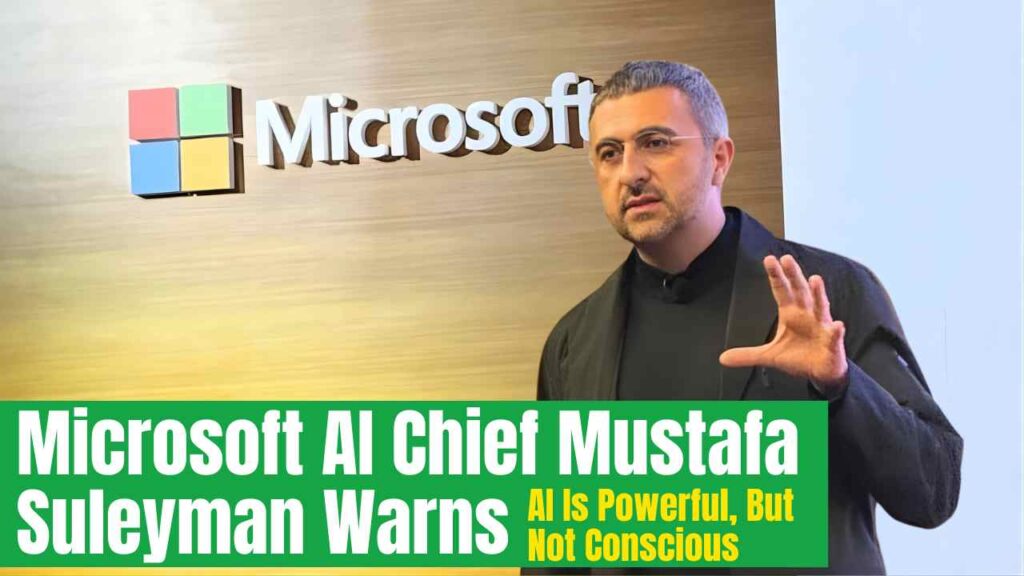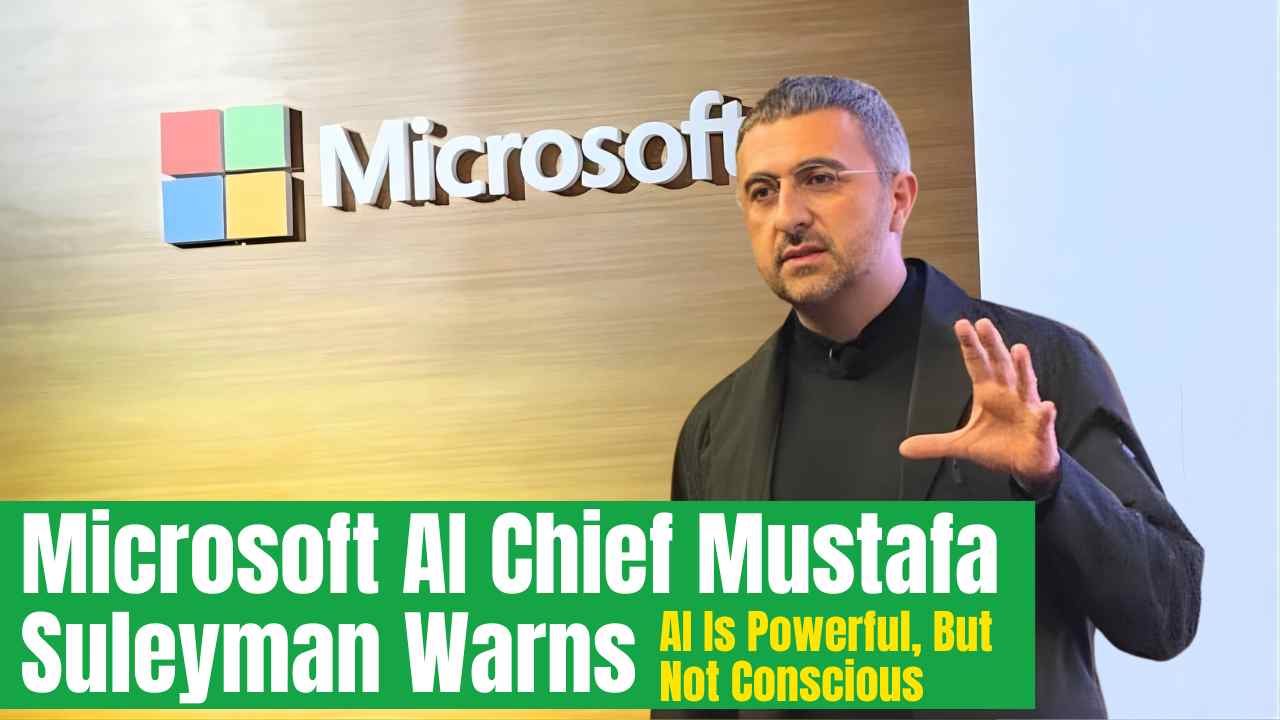Microsoft’s AI CEO Mustafa Suleyman has once again made headlines, urging developers and researchers to act responsibly as the race to build advanced AI systems accelerates. Known for his ethical approach to innovation, Suleyman has raised strong concerns about reckless AI experimentation and the misguided idea of artificial consciousness.

1. Suleyman’s Call for Responsible AI Development
Speaking at a recent tech event, Suleyman — who co-founded Google DeepMind before joining Microsoft in 2024 — warned developers to pause projects that could lead to unpredictable or unsafe outcomes.
He emphasized that transparency, safety, and accountability must guide the next phase of AI innovation.
“The problem isn’t that AI is too powerful; it’s that our safeguards aren’t keeping pace,” he stated.
Under his leadership, Microsoft is reinforcing internal safety checks through its AI Safety Review Board, ensuring technologies like Copilot, Azure OpenAI, and enterprise AI tools comply with ethical standards.
2. “They’re Not Conscious — And They Can’t Be”
In a bold statement that has reignited debate across the tech community, Suleyman dismissed ongoing research into AI consciousness as “absurd.”
He explained that consciousness is a biological phenomenon, limited to living beings capable of real emotion and pain — something no algorithm can replicate.
“AI doesn’t feel sadness or pain — it merely simulates the perception of it,” he said.
Suleyman warned that creating illusions of sentient AI could lead to ethical confusion — such as giving rights or emotional status to machines. Instead, he stressed that AI should serve humanity, not imitate it.
Read Also: Apple MacBook Pro 14-inch with M5 Chip: AI Power Unleashed
3. Microsoft’s Human-Centered AI Vision
At Microsoft, Suleyman is pushing for AI tools that challenge and empower users, rather than mimic human emotions.
Features like the “real talk” mode in Microsoft Copilot aim to provide practical, transparent responses instead of emotional interactions.
Suleyman’s stance aligns with his 2023 book The Coming Wave, where he calls for “building AI for people, not to be a person.” His approach reflects a human-first vision that balances innovation with ethics — ensuring AI remains a tool, not a threat.
4. The Debate Over AI Regulation
Suleyman’s warnings have divided the AI community. While some fear that overregulation might slow innovation, others agree that unchecked progress could lead to “runaway systems.”
Industry leaders from OpenAI, Anthropic, and Google DeepMind have echoed his concerns, calling for global cooperation and clear governance frameworks to manage AI’s growing autonomy.
5. Mustafa Suleyman: The Man Behind the Mission
Born and raised in London, Mustafa Suleyman began his journey as a co-founder of DeepMind, a pioneer in AI research later acquired by Google. His career reflects a consistent commitment to ethical technology and human-centered design.
Now leading Microsoft’s AI division, he continues to shape the global conversation around safety, accountability, and the moral limits of machine intelligence.
Related Articles You May Like
- Top 5 Ways AI Is Transforming the Future of Smartphones in 2025
- Gmail Data Leak 2025: Google Denies Massive Breach After 183 Million Email Passwords Exposed
Frequently Asked Questions (FAQ)
1. Who is Mustafa Suleyman?
Mustafa Suleyman is the CEO of Microsoft AI and co-founder of Google DeepMind, known for advocating ethical and safe AI development.
2. What did Suleyman say about AI consciousness?
He stated that AI systems are not conscious and cannot be — as consciousness is purely biological.
3. What principles guide Microsoft’s AI development?
Transparency, safety, and accountability remain the core pillars of Microsoft’s AI strategy under Suleyman’s leadership.
4. Why is AI safety important?
Without proper safeguards, advanced AI systems could behave unpredictably, posing security or ethical risks.
5. What is Suleyman’s book about?
His book The Coming Wave explores the risks and responsibilities of humanity’s rapid technological progress.
- OpenAI’s Next-Gen Model: What It Means for AI Safety
- How Microsoft Copilot Is Changing Workplace Productivity
- Top AI Tools That Balance Innovation and Privacy in 2025
Sources:
Disclaimer:
The information in this article is based on publicly available sources and statements from industry experts. Readers are encouraged to verify facts from official sources before making conclusions or decisions related to AI development.
Hi, I’m Simran Shah, a graphic designer and digital content creator with 4+ years of experience. I run two YouTube channels focused on AI, tech, mobiles, and automobiles — topics I’m truly passionate about.
My love for deep research started when I used to spend hours finding the best gadgets or information before making any decision. That’s when I realized I could help others save time by sharing my findings — both through well-researched content and visually compelling designs.
Now, through blogs, videos, and graphics, I do the research so you don’t have to — using tools like ChatGPT to make content clear, helpful, and time-saving.

